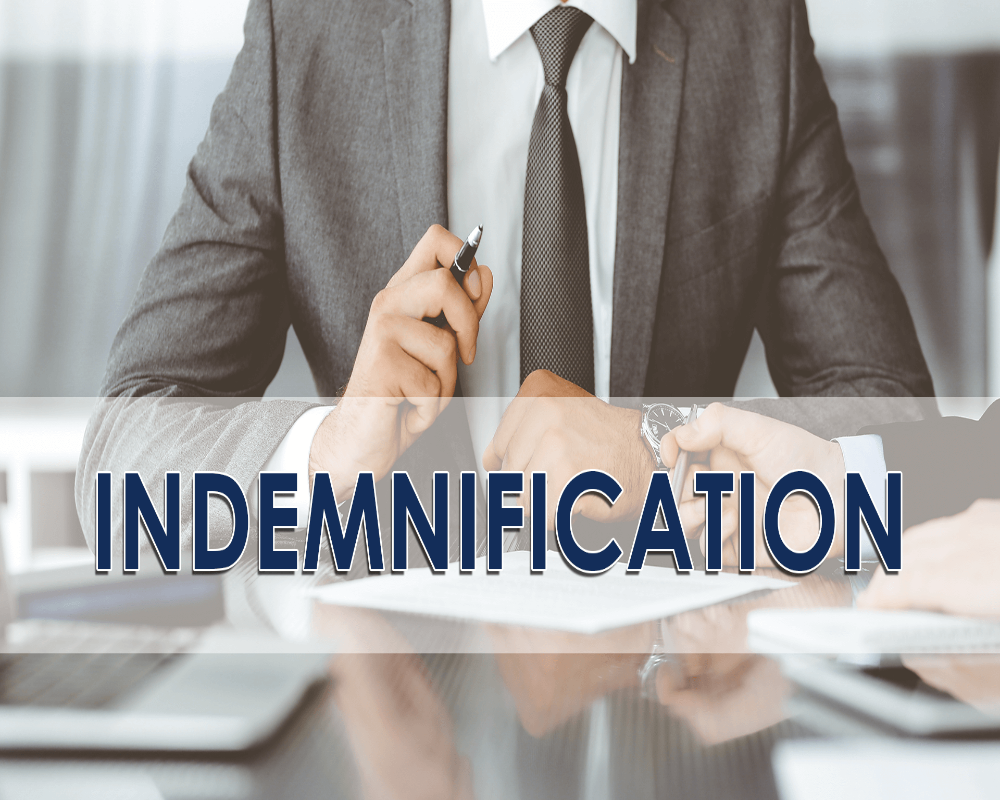Introduction
Indemnification in the context of partnership contracts refers to the obligation of a partnership firm to compensate or reimburse a partner for expenses, losses, or liabilities incurred while acting on behalf of the firm. This principle plays a vital role in ensuring fairness, accountability, and financial protection within a partnership. Recognized under the Indian Partnership Act, 1932, indemnification acknowledges that partners often act in the interest of the firm and may face risks or legal exposure as a result. When such actions are lawful and executed in good faith, it is only equitable that the firm shares the resulting financial burden. Understanding the scope, conditions, and implications of partner indemnification is essential for drafting a sound partnership agreement and ensuring the cooperative functioning of the firm.
Statutory Recognition of Indemnification
Section 13(b) of the Indian Partnership Act, 1932, specifically addresses the right of a partner to be indemnified. It provides that a firm is bound to indemnify a partner for payments made and liabilities incurred by him in the ordinary and proper conduct of the business, or in doing such acts in an emergency to protect the firm from loss. This provision reflects the principle that partners are agents of the firm and must be protected when they act responsibly and in the firm’s best interest. The statutory framework thus lays the foundation for partners to operate with confidence and legal backing.
Acts Covered Under Indemnification
Indemnification covers a wide range of acts, provided they are performed within the scope of partnership business and in good faith. Common examples include settling debts on behalf of the firm, making emergency purchases to continue operations, or covering costs for litigation defending the firm’s interests. It may also include liabilities arising from contractual obligations, fines or penalties paid on behalf of the firm, or expenditures made during crisis management. However, the key conditions are that the acts must be legal, necessary, and executed with the intent to benefit the firm or avoid potential harm.
Limitations and Conditions of Indemnity
The right to indemnification is not absolute and is subject to certain limitations. A partner cannot claim indemnity for losses resulting from acts done outside the firm’s scope of business, acts done in bad faith, personal negligence, or misconduct. Furthermore, actions taken without consulting other partners or contrary to the partnership deed may not qualify for indemnity. The partnership deed may also specify circumstances or financial limits within which indemnity will be granted. These restrictions serve to balance the need for partner protection with the need for financial discipline and collective decision-making.
Role of the Partnership Deed
A well-drafted partnership deed plays a crucial role in defining the terms and conditions of indemnification. It may specify the types of expenses or liabilities eligible for indemnification, the procedure for claiming reimbursement, limits on amounts, and approval requirements. It may also address indemnification related to specific roles, such as managing partner or finance partner. Clear documentation of indemnification clauses helps prevent disputes and ensures that partners are aware of their rights and responsibilities in different scenarios. It also serves as a legal reference in the event of internal or external audits and litigation.
Legal and Financial Impact on the Firm
Indemnification has direct financial implications for the firm, as it may involve reimbursement of substantial amounts to a partner. The firm must ensure that indemnification payments are recorded transparently in its books and supported by proper documentation. Uncontrolled indemnification can strain the firm’s finances, especially in cases involving litigation or regulatory penalties. Legally, failure to honor legitimate indemnity claims can lead to internal conflict, erosion of trust, and potential legal action by the aggrieved partner. Thus, careful evaluation and clear policies are necessary to manage indemnification responsibly.
Dispute Resolution in Indemnification Claims
Disagreements regarding indemnification are not uncommon, especially when partners differ on the legitimacy or extent of the expenses incurred. Such disputes may be addressed internally through discussion or mediation, or externally through arbitration or litigation if provided in the partnership agreement. The availability of evidence such as invoices, contracts, communication records, and board resolutions plays a vital role in resolving such claims. The courts generally uphold indemnity claims made in good faith and within the bounds of the partnership agreement and law.
Importance of Business Continuity and Partner Trust
The concept of indemnification fosters a culture of accountability, trust, and shared responsibility. It ensures that partners can act decisively in urgent or high-stakes situations without fear of personal financial loss, provided their actions are legal and justifiable. This assurance encourages proactive decision-making and helps maintain business continuity. It also strengthens internal relationships by reinforcing the principle that the firm stands behind its partners when they act in good faith for its benefit. Consequently, indemnification contributes to long-term stability, loyalty, and integrity within the partnership.
Conclusion
Partner indemnification is a cornerstone of equitable risk-sharing in a partnership firm. By legally binding the firm to reimburse partners for legitimate actions taken in its interest, the law promotes confidence, responsibility, and operational efficiency. However, this right must be balanced with prudent financial practices and clearly articulated in the partnership deed to prevent misuse. When implemented thoughtfully, indemnification serves not only to protect individual partners but also to uphold the collective strength and legal integrity of the firm. A well-defined indemnification policy reflects good governance and enhances the firm’s capacity to navigate challenges with unity and accountability.
Hashtags
#PartnerIndemnification #ContractLaw #LegalContracts #BusinessContracts #RiskManagement #IndemnityClause #LegalAdvice #ContractNegotiation #BusinessPartnerships #LegalProtection #ContractualObligations #LiabilityProtection #BusinessLaw #LegalFramework #ContractTerms #PartnershipAgreements #Indemnification #LegalCompliance #RiskMitigation #ContractualRisk #BusinessLegalities #LegalInsights #ContractDrafting #PartnershipLiability #UnderstandingContracts


0 Comments